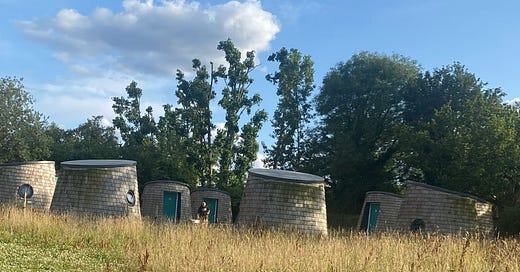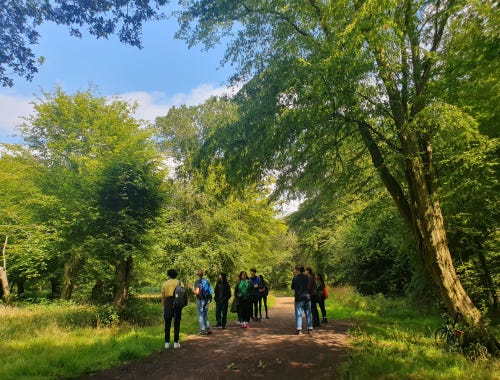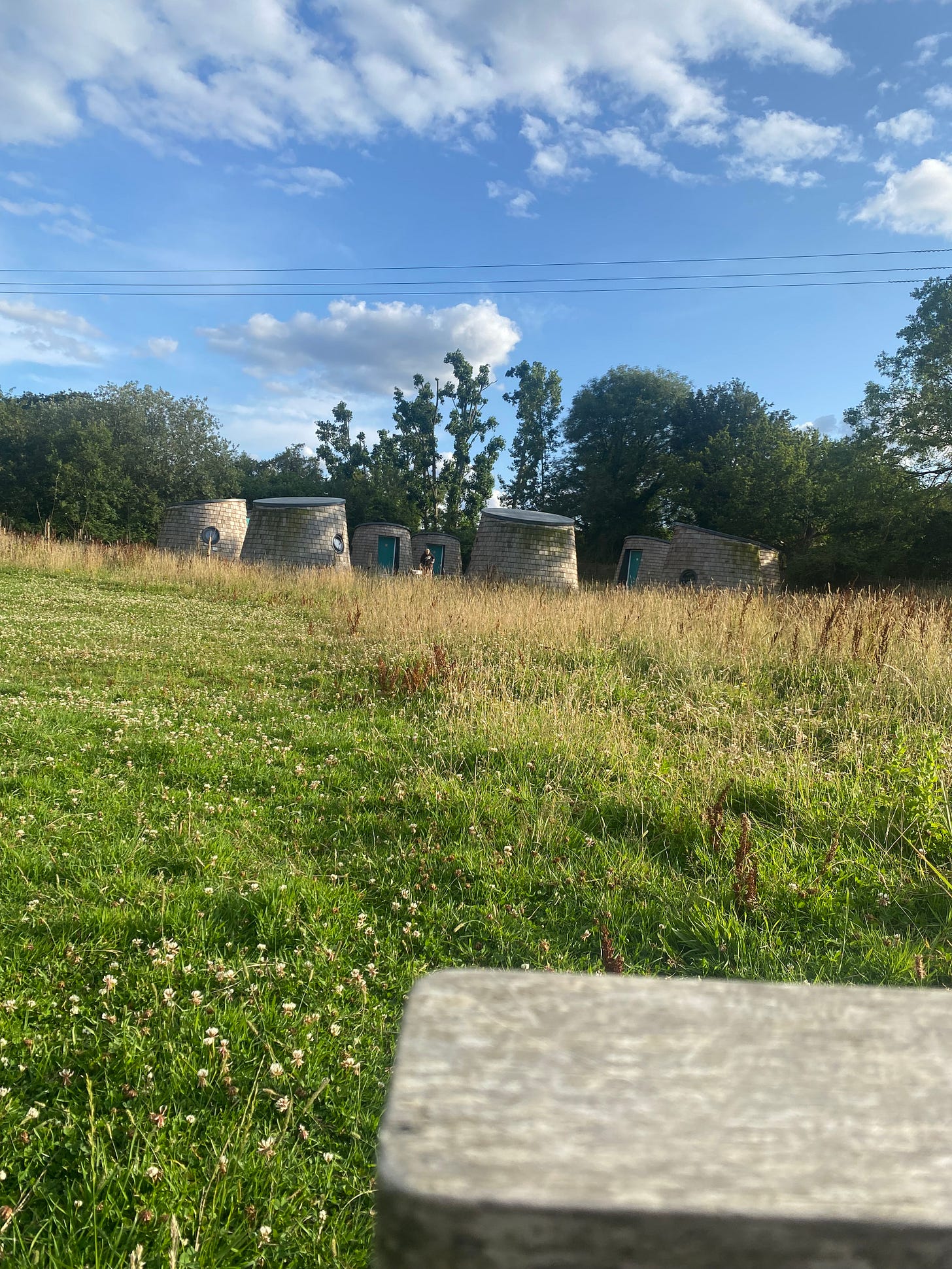Climate Leaders: Eco-Action Week
My review and experience of The Hives climate leadership course
What was the Climate Leadership programme?
It was a great opportunity for people aged 16-25 to connect with other like-minded environmental enthusiasts while learning about the current state of the climate crisis as well as its causes and effects. We learnt about environmental challenges and how we could tackle them with more sustainable techniques, such as a variety of conservation methods (which was equally as interesting and informative!) The premise of the course was to gain a nationally recognised Carbon Literacy accreditation and develop climate leadership skills, which to me seemed like an attainable goal due to the inherent encouragement and supportiveness from the group.
Day 1:
On the first day, we gathered at the Waltham Forest Town Hall where we participated in icebreaker activities to get to know each other. We then expanded our knowledge about the causes and effects of the climate change cycle and how it contributes to GHG emissions. Afterward, we met with a climate data analyst, where we discussed the positive environmental impacts of solar panels and energy-saving techniques.
Shortly after, we discoursed suggestions to make our community more environmentally sustainable, a couple of ideas we expanded on were about waste management, e.g. accessibility of recycling facilities, incorporating more food and organic waste management through schemes such as compost bins and utilising local refill/zero waste stores. The other group came up with incorporating more environmental lessons being taught throughout schools to educate our younger generation about the importance of reducing the impacts of climate change by initiating clubs students can attend, to become more aware and to take part in making a positive change, e.g. by planting trees or having compost bins in schools.
Subsequently we formed surveys based on how Waltham Forest residents would feel about how our initiatives would advocate for change. Throughout making the surveys, our course leaders, Emily and Poppy were affirming us of our ideas and continually reassuring and encouraging us that we would receive positive responses from the surveys (which we did!)
Day 2:
On the second day we met at Chingford station where we reconvened at the community hub and made final edits to the survey and received QR codes for respondents to scan and take the survey digitally on their phone (eliminating the need for paper waste!) The other group did slightly better on the number of respondents they got (not that it was a competition or anything). We then made our way through Epping Forest, we explored and learnt about the amazing ecology of the forest. Home to a rich variety of wildlife, the sustainable management of the trees is integral to promoting biodiversity. We learnt about the importance of pollarding and the different types of trees that make up the forest, such as Hornbeam, Oak, Beech, Holly and more! This was by far one of my favourite activities during the course, it was fascinating to learn about the history of the woodlands as well as forming a connection with the nature that surrounds us.
We made our way to The Lodge and continued with the Carbon Literacy course, shortly after we settled in the pods, which to me looked futuristic. We went to the pond where we identified and examined the specimens that resided there, with the assistance of Abby, another course leader. I'm no longer afraid of insects after encountering a Water Boatman, which was oddly intriguing.
We met some animals, a pregnant Stick Insect, which happily crawled on my hand. A friendly Corn Snake, named Cornflake. A timid Giant African Snail that was half asleep in my hands, a tentative North African Salamander and a Cockroach that I wasn’t particularly fond of.
As it got darker we had a campfire and made vegan s’mores! No more s’mores!
Day 3:
Waking up to be greeted by the beautiful sunshine in the morning made me appreciate the importance of connecting with nature, it was so lovely. We continued with the Climate Literacy course and planned for our presentations based on our ideas for making the community more environmentally sustainable. The course leaders succeeded in creating a space that invited great ideas. For the management of food waste initiative, I came up with the idea of an average consumer buying a packet of strawberries. The principle of buying one item that separates into three different types of waste; the plastic container goes into the recycling bin, the stem of the strawberries goes into the organic waste bin and the film, which cannot be recycled at home but can be at large supermarkets and recycling facilities, which often people dispose of it in the general waste bin. The idea was to demonstrate how much waste goes into buying a singular item and how we must dispose of our waste sustainably, by being aware of the options available to us, and knowing how to eco-consciously dispose of such items.
Later on, we immersed ourselves in building an insect hotel, using tools and equipment to chop wood, and somehow I summoned enough strength from my right forearm to successfully chop through two inches of wood, which to me was a great achievement. Feeling accomplished, we then set off to walk back to the station, where we departed and prepared ourselves for the presentations for the following day.
Day 4:
Presentation day. From the continuous support from the course leaders, the pre-presentation nerves were non-existent. Our slideshow presentations as well as our spoken words helped to convey our ideas on how to make our community more environmentally sustainable. Overall the presentations went smoothly and numerous questions were asked, to which we appropriately responded.
Reflection:
Throughout the whole course, the encouragement and stimulating discussions never faded. The course leaders did a fantastic job in checking in with how we are feeling and having reflection periods throughout the sessions to ensure everything was going well, the course was well-organised and immersive with a combination of practical and theoretical elements that kept us engaged and interested in knowing more about environmental sustainability and how we as individuals can take an active role in tackling climate change and conserving nature.





